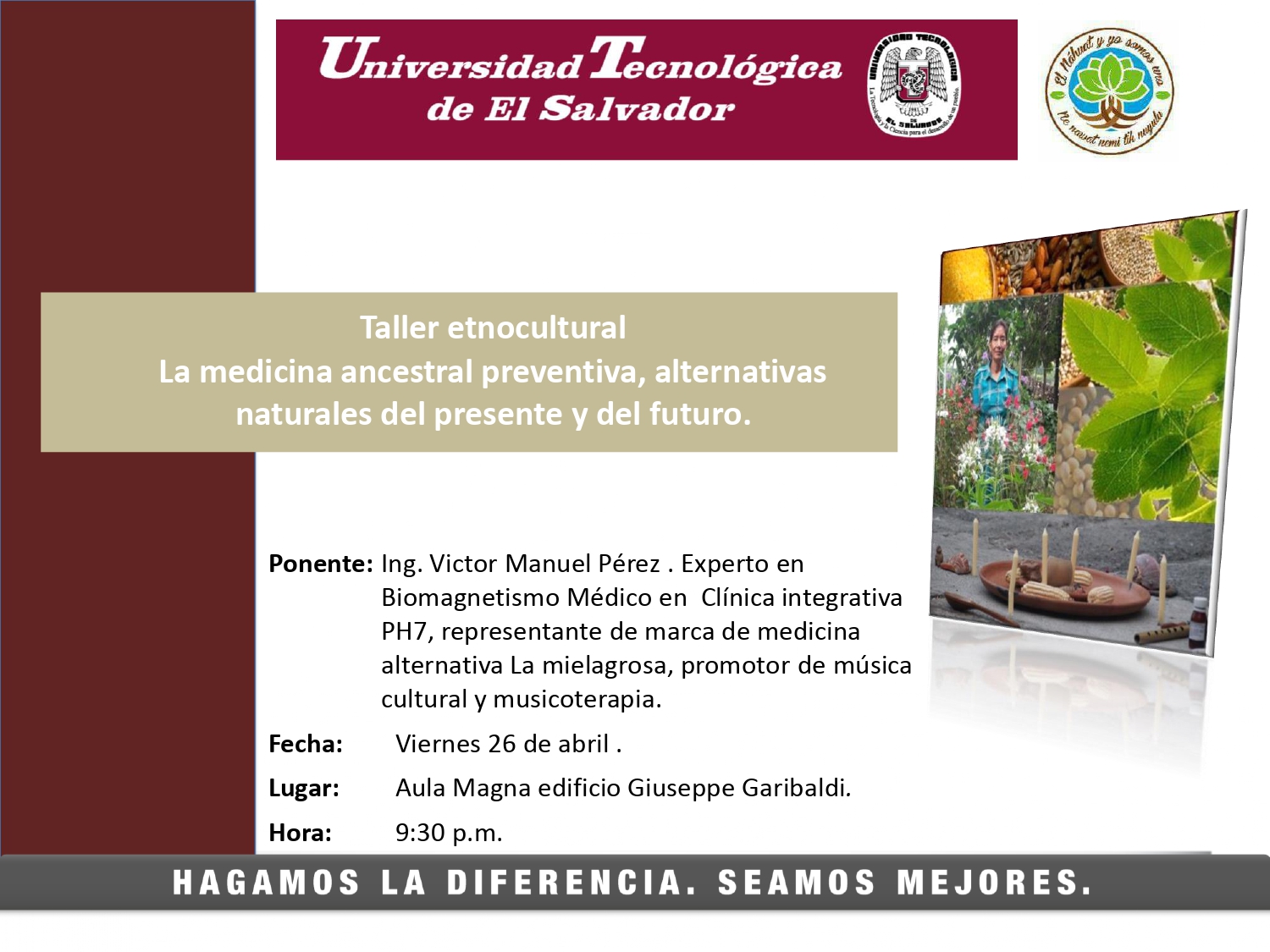
Taller etnocultural. La medicina ancestral preventiva, alternativas naturales del presente y del futuro.
Taller etnocultural.
La medicina ancestral preventiva, alternativas naturales
del presente y del futuro.
Hoy día la mayoría de personas relacionan la ancestralidad con el pasado o lo antiguo, en los pueblos indígenas el-termino ancestral tiene otra connotación. Ellos tienen una visión diferente del tiempo y aseguran que no hay pasado, presente y futuro, y que el tiempo no es lineal sino cíclico. “Lo que fue alguna vez volverá a ser aunque con otros aportes, pero ese tiempo vuelve”, comenta uno de los indígenas de Tacuba, un municipio del occidente de El Salvador. En ese sentido señala que lo ancestral no existe en los pueblos indígenas. Para ellos la ancestralidad es la inspiración original que la naturaleza ha provocado en los seres humanos, la cual va acompañada de las tradiciones, creencias y costumbres que cada pueblo mantiene viva a través de sus lenguas indígenas que siempre les conectan con el entorno y la vida.
